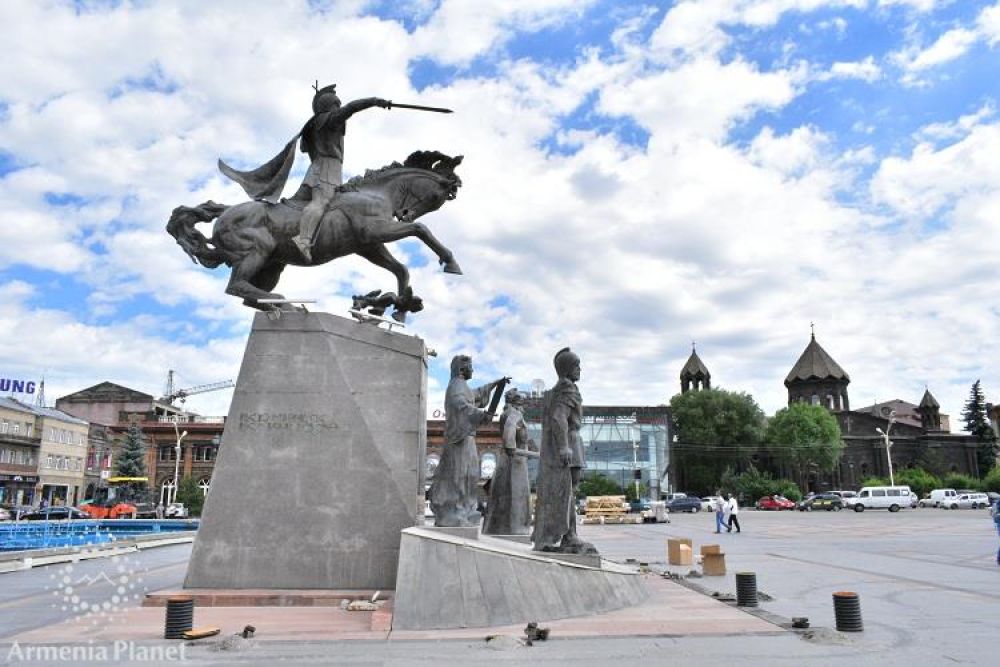

The delightful city of Gyumri stands as a beacon of Armenian culture and history, with Vardanants Square at its beating heart. Known for its rich tapestry of historical events and architectural beauty, Vardanants Square has been a significant focal point for tourists seeking to immerse themselves in Armenia's past and present.
The history of tourism in Gyumri, and specifically to Vardanants Square, is intrinsically linked to the city's storied past. Named in honor of the Battle of Avarayr in 451 AD, where the Armenian commander Vardan Mamikonian led his forces against the Sassanid Persian empire, the square commemorates the valiant struggle for Armenia's Christian faith. Throughout the centuries, Vardanants Square has played a central role in the life of Gyumri, previously known as Alexandropol and later Leninakan, before reverting to its Armenian roots.
With its splendid array of neoclassical and national romantic style buildings, Vardanants Square has always attracted visitors with an eye for architectural elegance. Many buildings have been reconstructed following the devastating earthquake of 1988, which greatly impacted Gyumri's infrastructure and tourism industry. Efforts to restore these structures to their former glory have been pivotal in reviving the square's appeal as a tourist destination.
In recent years, Gyumri has seen a resurgence in tourism, with Vardanants Square at the vanguard of this revival. Tourists flock to the square to experience the vibrant cultural events, open-air markets, and the captivating Museum of National Architecture and Urban Life, housed in the Dzitoghtsyan House – a testament to the cultural renaissance of the city.
Today's visitors to Vardanants Square can enjoy the modern amenities and accommodations that have sprung up around the historical center. Cozy cafes, traditional Armenian restaurants, and boutique hotels offer a warm welcome to tourists, who can easily spend days exploring the nearby churches, galleries, and monuments that tell tales of Gyumri's rich cultural tapestry.
Understanding the potential that lies in Gyumri's cultural and historical assets, the Armenian government, along with several non-governmental organizations, have implemented initiatives aimed at boosting tourism. These include expanding transportation links to the city, developing tourism infrastructure, and promoting the square and its surrounding attractions through various marketing campaigns.
Vardanants Square remains a symbol of the indefatigable spirit of Gyumri and a beacon for tourists seeking authenticity, history, and culture. As it continues to evolve, the square stands not only as a tribute to the past but also as a foundation for a flourishing future in tourism.